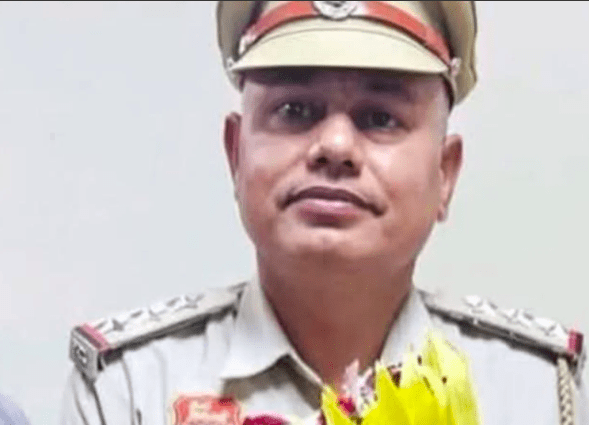In a major development, the Haryana Police arrested Inspector Radhey Shyam, a suspended Station House Officer, on Saturday for his involvement in a shocking case of custodial torture at the Palwal city police station, reported the Maktoob Media.
The incident, which dates back to December 2024, involved a detainee from Rajasthan accused of fraud. Instead of conducting a fair and lawful investigation, Radhey Shyam—who has a notorious record of custodial violence and is infamous for targeting Muslims—allegedly subjected the accused to horrific abuse.
According to reports, Shyam brutally beat the man, forced him to consume chilli paste, and inserted the substance into his private parts using an injection.
The investigation concluded on April 16, confirming the allegations and leading to Radhey Shyam’s immediate suspension by the Inspector General of Rewari Range. Additionally, he remains under scrutiny in a separate inquiry related to similar custodial torture allegations involving two cybercrime suspects.
Radhey Shyam had earlier served as the head of the Special Cow Protection Task Force in Nuh and was widely supported by Hindutva groups like Bajrang Dal and individuals such as Bittu Bajrangi—both known for inciting violence against Muslims in the region.
Calling the arrest long overdue, senior Congress leader and Nuh MLA Aftab Ahmed said, “Radhey Shyam is a habitual offender and should have been removed from the police force long ago. He has committed horrific atrocities, especially against Muslims. Anyone supporting him is endorsing illegal and inhumane acts.”
In response, Hindutva organisations have threatened to protest statewide if the suspension is not revoked. Bittu Bajrangi, a convict in cases related to lynching, declared plans for highway blockades and public demonstrations.
“This suspension happened due to political pressure from people like Aftab Ahmed. I didn’t know Shyam personally but admired his actions against cow smuggling. Now such people are being silenced,” Bajrangi told the press.
This case has reignited serious concerns over systemic police brutality and the rising communal bias in law enforcement in parts of North India.




